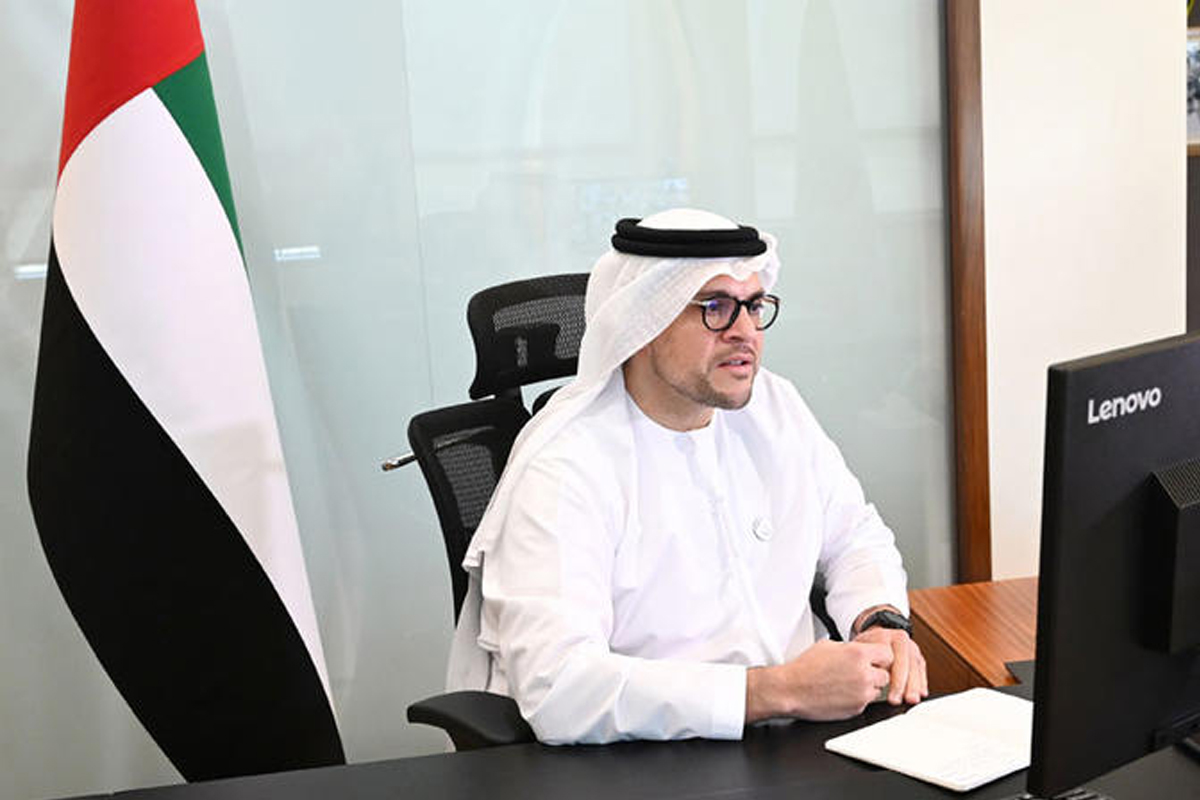Abu Dhabi Private and Public Sector Gather To Help Shape Economic Strategy for the Next 50 Years

21
Oct , 2020
The Abu Dhabi Department of Economic Development (ADDED) and the Abu Dhabi Investment Office (ADIO) today hosted a virtual event for the private sector to share feedback and recommendations as the UAE prepares for the coming 50 years. “Designing the Next 50 – Abu Dhabi Private Sector Roundtable” was held as part of the UAE Government’s “Designing the Next 50” project that is working to establish the UAE Centennial Plan 2071, an initiative under the year “2020: Towards the next 50”.
The roundtable gathered about 70 business leaders and investors across a variety of sectors to discuss opportunities and challenges that will be used to establish and enhance programmes aimed at supporting the private sector in Abu Dhabi and the UAE.
The inputs and takeaways from the roundtable will inform government initiatives to boost support for businesses in Abu Dhabi, in addition to contributing to the UAE’s comprehensive development plan for the five decades beyond 2021.
H.E. Mohammed Ali Al Shorafa, Chairman of ADDED and ADIO, said: “The UAE has achieved tremendous growth over the past 50 years, with the private sector playing a pivotal role in driving economic progress and diversification. As we look ahead to the next 50 years, in Abu Dhabi, we are doubling down on our partnerships with the business community to ensure we are empowering them with the tools and resources they need to thrive. Ultimately, their success is our success and we are committed to working hand-in-hand to unleash powerful opportunities in Abu Dhabi and the UAE’s future economy.”
During the roundtable, event attendees from the private sector expressed views on challenges and opportunities, and provided recommendations for closer collaboration with the government. In light of the current Covid-19 pandemic, the need for ways to safeguard residents and the economy in potential future scenarios was a key point of discussion, with attendees providing feedback on further strengthening support for the SME ecosystem, academia and the environment. In addition, the importance of regulatory reforms to continue to improve ease of doing business, fostering strong public-private partnerships and increasing access to innovation, talent, resources and customers were also discussed. Each topic was formally addressed at the roundtable and will also be surfaced to the relevant Abu Dhabi entities to guide long-term planning and strategy.
H.E. Rashed Abdul Karim Al Balooshi, Undersecretary of ADDED, commented: “The UAE has been implementing long-term visions, plans and strategies throughout its history, which has led to achieving the development it has reached today. The launch of the ‘Designing the Next 50’ project reflects the country’s vision for the future with the participation of its people, the nation’s most valuable wealth. In line with this, ADDED seeks to adapt to emerging trends, enhance its global competitiveness, and strengthen Abu Dhabi’s position as the land of dreams and opportunities. Today, we must design Abu Dhabi’s economic future for the next generations to achieve sustainable economic development and position the emirate as the global economic hub of the future.”
H.E. Dr. Tariq Bin Hendi, Director General of ADIO, said: “As part of our commitment to empower the growth of the private sector, Abu Dhabi is increasing engagement between the government and businesses. Close collaboration is vital in attaining shared achievements. As the central hub supporting private sector investment in Abu Dhabi, ADIO is committed to developing opportunities and aiding relevant reforms for the private sector. As we pave the way towards the UAE’s next 50 years, we look forward to working with the business community to shape key sectors in the emirate.”
The roundtable builds on the success of previous public-private sector collaboration initiatives, including a series of similar roundtable events held over the past two years and the formation of the new Abu Dhabi Economic Collaboration Committee that is strengthening cooperation in strategic sectors.